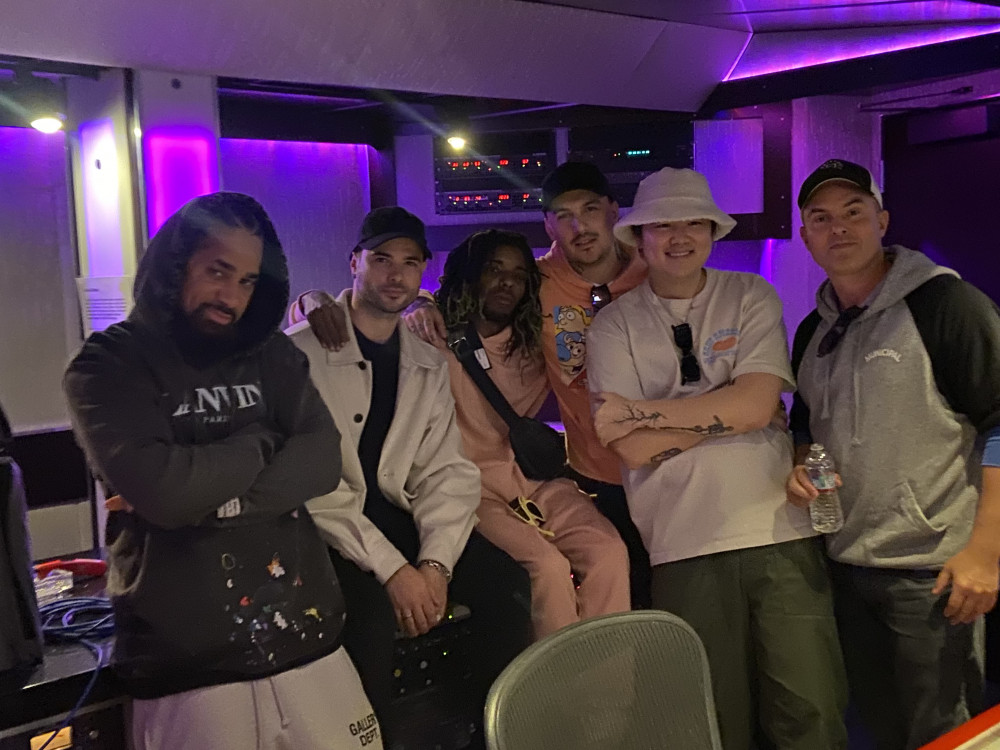
Before a K-Pop song is ready to be shipped worldwide to audiences and packaged up in theatrics and showmanship, the song is ideated, blueprinted, iterated, and tied with a bow before it runs its promotional course. By the time fans consume a comeback, the song has circumnavigated the globe, going through countless hands and minds before it becomes the household fan staple for the next few months of a group’s next comeback.
Have you ever wondered what goes into the making of a K-Pop hit song? With the music industry constantly churning out new releases, how do K-Pop companies keep up with the ever-growing demand? The answer lies in something called "song camps." In this feature, we take a closer look at how these camps work and what role they play in the creation of chart-topping K-Pop hits through an exclusive interview with producers, songwriters, and A&R from The Hello Group.
As a global entertainment company, The Hello Group has established its presence in major cities across the world spanning from Los Angeles to Brussels. Their diverse range of divisions encompasses talent management, music distribution and publishing (in partnership with Sony Music Publishing), film and TV development and production, live touring, and most recently the release of Hello Soju, a sparkling soju beverage. This has allowed them to become a significant player in the entertainment industry, with numerous accolades to their name, including 41 Billboard #1 chart results and more than 70 golden and platinum records. Under the leadership of music executives Taylor Jones and Phil Quartararo, who have a wealth of experience working with some of the biggest names in the industry, THG has been able to consistently produce chart-topping hits.
We’ve brought some of K-Pop’s biggest songwriters and producers, Alawn, Andy Love, Rokman, Benji Bae, and Michael Mancuso into this panel interview to give readers an inside look at how their favorite tracks are made. Keep reading below to learn what exactly a song camp is, how a song is made, what makes a song good, and more!
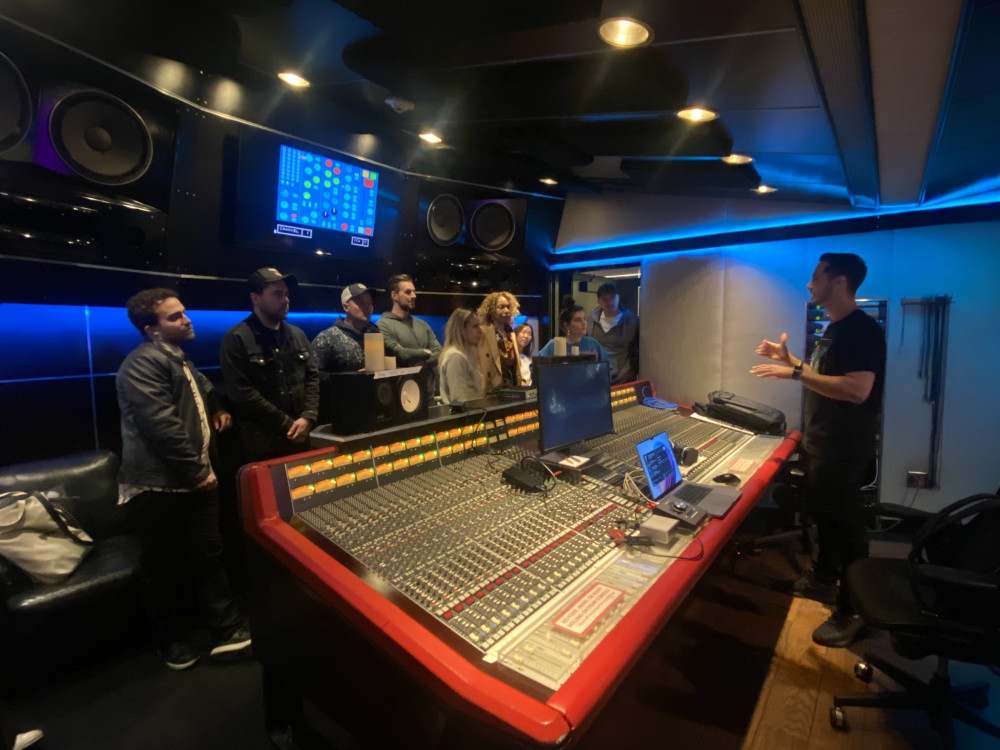
allkpop: Hey folks! Thanks for joining us in the interview today. For readers who might not be familiar with your work, tell us a little bit about yourself, what you do, and name one notable K-Pop song that you worked on that our readers here at allkpop might recognize you for.
Alawn: My name is Alawn and I’m a producer, songwriter, and mixer. I’ve been heavily involved in K-Pop for almost four years now. I would probably say “Mmmh” by KAI and “Eleven” by IVE.
Benji Bae: My name is Benji. I am a singer-songwriter currently in Los Angeles. “Lemonade” by NCT 127 is a track that came out that I worked on. I was also on a SHINHWA unit track, but I think the NCT track is gonna be the one people recognize. I did the songwriting and helped out with the production.
Rokman: I go by Rokman and I produce and write. I like to be involved in as many aspects as I can creating these awesome songs. I'm most known for “Lemonade” by NCT 127, it seems to be my most notable release!
Andy Love: I am a singer. I write K-Pop and J-Pop and I’ve been fully immersed in that market for about 5 or 6 years now. Before that I was a little more generic in terms of European releases, American releases and some TV shows I’ve done theme songs for. All I do now is K-Pop. Some songs you might recognize from me are ENHYPEN “Shoutout”, TXT “LO$ER=LO♡ER”, TWICE “Yes or Yes”, and SuperM “100”.
Michael Mancuso: I’m Michael Mancuso and I’m the A&R Manager at THG Publishing. We’ve worked with a bunch of artists across the soundscape of K-Pop, but most recently, we did a song for IVE called “Next Page” and “Shoutout” by ENHYPEN.
allkpop: So the reason I brought everyone together was because I wanted to deep dive into the topic of songwriting camps, especially as they pertain to the production of K-Pop! Each of you are fairly fresh off the tail end of the The Hello Group x Sony Music Publishing x SMTown Camp and it got me thinking, how can we pull back the curtain to show audiences how their favorite music is made behind-the-scenes? For readers who might not be familiar, please explain what a songwriting camp is, and what the purpose of having them is.
Benji: It’s for the purposes of expediting the musical process. You have an artist in mind when you go into the camp; a musical direction. You bring in people who may not have collaborated together and you spend maybe 4 or 5 hours a session (a block of time) creating the best song you can with the chemistry that’s in the room.
Rokman: A song writing camp is where there’s a common goal of providing a label or group more songs for whatever their purpose is. They pick people that they think would be good to work together and put them in the same room to work together. They put them all in the same building, and create sessions with the people they picked and they just go at it. Sometimes they’ll have an artist that needs a specific type of song and they'll tell everyone to go for that or they’ll just say, you’re free to do what you want, we just need some great songs for our artists.
Alawn: This is the main source of the songs coming from K-Pop. Of course, us writers and producers create everyday in our own studios. We submit songs individually, and a lot of them get cut this way, but there’s a closer relationship with the record company when you’re in a camp because you’re assigned to a specific label. If it’s an SM camp, of course you’re writing specifically for SM and they will have first dibs on those songs.
Andy: There’s two sides. It’s a promotional push for whomever is putting the camp on. It gets their name out there and lets the world know that they’ve got writers that can deliver and are consistently delivering. The other side is that the A&Rs (Artist & Repertoires) from the label can be slightly more involved in the creative process and step in and say, “We’re liking this or we’re not liking this. Maybe you need to focus on these weaker points. Or this might not be right for the band. Mark wouldn’t sing this, or KAI wouldn’t sing this.” It’s a cross-purpose thing that serves everyone, really. The writers, the host, and the label.
Michael: Songwriting camps can happen either internally or externally. We just partnered with SM and put together a camp targeted at the NCT family specifically. In that situation, you are given directions from the label. Label A&R and Publishing A&R are coming into the room and checking on your progress every day. They provide active feedback, tweaks, and help to guide the song towards the selected artists. Especially when you do it the way we did it with SM, you now have a direct in for those songs too. Rather than waiting for another brief to come out or sending in a song individually, it creates a more direct avenue. At our last camp we had multi-Grammy award-winning Western writers and all of us coming in from the THG publishing side. Where we had K-Pop experience, they had Western writing experience. We were intentionally trying to create distinct pairings and blend worlds that wouldn’t have otherwise had the opportunity to blend, specifically for a K-Pop project. Camps give you the chance to play. You can increase your network and target specific artists.
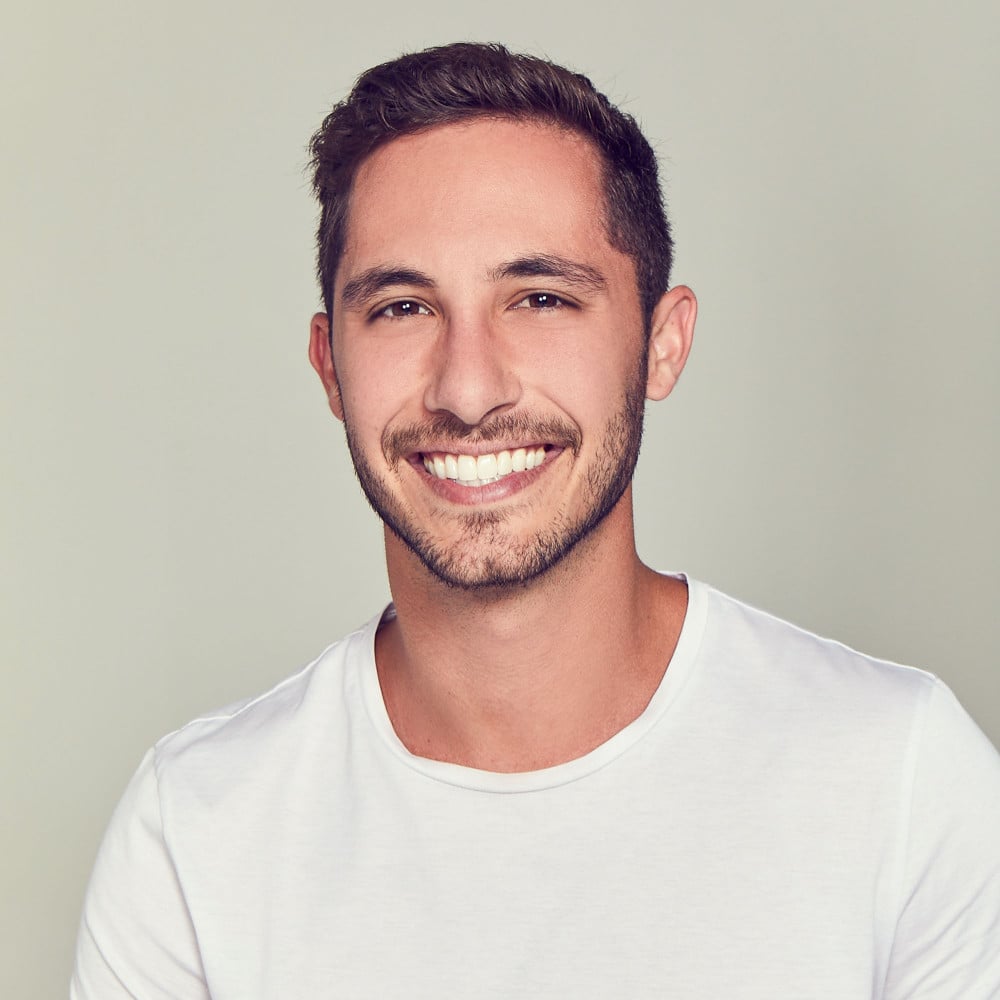
allkpop: I’d love to hear your personal experience in a camp. Anyone have a story to share about how they ended up at one the first time and what that experience was like?
Alawn: A lot of it comes from publishers. That’s why it is a plus to have a great publisher that can put you in those rooms because they already have a great relationship with labels. For me, my manager, Taylor Jones, was working with some Korean publishers at the time. They asked us to work on a song which became “Go Tomorrow” for the TV show Under Nineteen. I worked on this song and we built a nice relationship and they happened to organize an SM Camp. They asked me and Taylor, who is a writer as well, “Do you want to fly and write some K-Pop?” and we said yes! I went there and knew nothing about K-Pop, but that’s where I completely fell in love with it and 6 months later I was called back by SM for another camp, and I was much more ready then. That’s when I wrote “100”, “Kick Back”, “Punch”. A lot of songs came from that camp!
Andy: I’ve got a good story about that. I was brought out to Korea to be in a SM Camp. It was the first time, and where I met Alawn actually and Taylor. That first camp was a fortuitous meeting of amazing people and I instantly knew I loved those people as humans, businessmen, and musicians. On the second day, we had a direct lead from Lee Sooman, himself, saying they had assembled the Avengers of K-Pop, which would go on to become SuperM. There was a lead for a Breakbeat, Drum and Bass kind of vibe, and my thing has always been and is still Drum and Bass. I knew I could nail it when that brief came in. I said to Alawn, “Let’s just stay up the whole night and work our asses off. This one is ours.” Long story short, we did end up getting it and we saw the music video three or four months after that. It was the best feeling in the world. That one camp led to a lot of amazing contacts and it led to a hit song. It doesn’t always happen like that, but that was a very special one.
Alawn: I remember flying to Seoul for the first time and just being in a brand new city. The energy itself feels magical. You’re there to only write and make music. Each morning you head to breakfast at the hotel, where everyone else is also eating. You make new friends, you have dinner together. Andy and I met during our first SM Camp and nearly have dozens of cuts since. It's like being in a bubble for a week.
allkpop: I know while you’re in these camps, you’re creating all day long. Can you walk us through how the camp is structured? What’s the average duration of one?
Rokman: As a producer, you definitely are going to have the most work when it comes to a camp. Usually they’ll give you a schedule before and they’ll say, “you have X amount of sessions a day”. Maybe 1 or 2, 3 if it’s a crazy day. There are the people you’re working with for the first session, and there are different people you’ll work with for the second session. As a producer, especially, it’s a very long day. It can be anywhere between 8 to 19 hours or it just doesn’t end and you have to keep going. I’ve had to prepare tracks ahead of time or create them on the spot. The songwriters will be in the same room with you and you develop the songs together in real time.
Benji: For this last camp, it was from 9 AM to 10 PM. I think the normal session is about 5 hours. You have to think about what ideas you have to provide. There’s a difference between a producer and a writer. Writers might also know how to produce, and producers might know how to topline as well. I think it depends on how much chemistry there is in the room. I can’t really stress enough how much efficiency there is in finding common ground. Writing a whole song, especially a K-Pop song, in 4 to 5 hours, is a lot of work. You got your harmonies, four different genres going on, dance breaks… it’s kind of trying to fit in as much as you can in the time that’s available.
Andy: The 2 week ones can feel like an eternity, especially on the last few days. You get up and sometimes you think, “There is just no way I am writing another song today.” You’re testing your limit- because that’s potentially 12 to 13 songs in one stretch, which is a lot! Camps are intense. It’s not like you can slump off and take a nap or anything. The ones over here (not in Korea) can be anywhere between 3 days to 5 days.
allkpop: What does a typical day look like and what does your process look like? How do you approach a day's session in a song camp?
Rokman: There’s really no rules, you just try to achieve whatever your goal is. If you have two sessions a day, it would be great to finish two songs that day or at least get enough of it done that you could give it to the label and see what they think. Or bring it home to finish it up quickly after the camp is over. That way you get what you need from the people you’re working with while you’re there.
Alawn: Everyone has a different pace and style at which they write. I know a lot of producers like to prepare ahead of time, but I’m the type to go into the camp with nothing prepared. You just never know what you’re going to come up with, so I like coming in with nothing and looking at the brief they give us. Or I ask the writers, “Hey, what are you feeling today?” The energy of being in the room with other writers helps. The first half of the day is me making the track and creating the production. I do a rough sketch of it and while that’s happening, the writers and I start going back and forth with the melodies and laying down the components piece by piece. After lunch, I come back with fresh ears, listen to what we have, and tweak. I’ll export what we have and give it to the writers, so on their laptop and headphones or in the vocal booth, they can write the lyrics. In the meantime, I go in on the production and add details and sounds for about an hour. The singers come in, and we cut all the vocals for the songs. The lead, the harmonies, and background and at the end of the day we have a whole song.
Andy: When you go international, especially when there’s an 18 hour time difference, especially in Seoul or Tokyo, you really have to make the most of it and you have to lengthen your stay a little bit because the first four days you feel like a zombie. Not only are you battling a room full of new people, you’re also trying to ascertain different personalities. You’re thrust into a room of people you’ve never met, so one of the first things to do in the first three hours is just to talk and laugh and work out what they like, or a certain way they like to do melodies. Because what you don’t want to be is a pushy person. You don’t want to be just shoving ideas relentlessly down other people’s throats. I tend to just sit back and listen and let other people step up, because then I know how to work with different personalities.
allkpop: How much of a song do you need to finish to consider it ‘ready for delivery’ and how do you know if you’re going in the right direction?
Andy: There’s about two different sessions in a day. You’re throwing everything you’ve got at a wall and hoping that in just one 2-hour period, that you’ll be able to spark magic. You can always finish at a later day and fine tune. I don’t like to finish anything for the sake of finishing it. It has to be perfect, or else what’s the point? They’ll let you know immediately if you’ve got something really special.
Michael: You’re not creating a song in its entirety. You can, and some rooms and groups will be fast enough to do that, but generally if you get a verse 1, pre-chorus 1, chorus 1, verse 2 and the bridge, you’ve created enough context for someone to understand. In K-Pop, your pre-chorus and bridge are very important to differentiate from a Western song. As long as the A&R can hear a rough outline of where a song is going to go then you can move onto the next and there will be finishing time after. Sometimes, the A&R will run with just verse 1, pre-chorus 1, and chorus and if they greenlight that concept, then they can turn the second half into a topline competition.

allkpop: What do you think are the benefits of being able to collaborate with other songwriters in the camp setting?
Benji: The more cultural variety there is the better. Music is one of the things on this planet where you don’t really need to speak a word of it to get a message or a meaning. But, I would say that you really need to know or have the confidence to speak to your ideas so it’s clear to other people, versus having an idea that’s clear in your head and then not being able to explain it properly and getting nowhere. You have to know when to push and when to give.
Rokman: The best part for me is when I get to meet new people that I really vibe with and we create great things very easily.
Michael: There are a lot of benefits to jumping into rooms with random people, because you might discover a new writing partner for life, but there's also the inevitable breakdowns that happen at camps. That’s where your character is put on display.
Andy: It all has to do with the host, so you go in hoping that they’ve vetted and are consistent. THG definitely knows their people, and that was a magical camp that we did recently at Paramount. I like to know who is going to be there. It lets me know the quality, the caliber, and the consistency. I have been in one or two camps that have felt like a complete waste of my time. They’d invited a lot of cool Americans who were great in the Urban world and 8-bar loops, but in K-Pop you have to be incredibly versatile. You have to be able to switch it up like Dem Jointz or like Alawn. These guys were the opposite of versatile, so I was in the room trying to crowbar the song into a different area, but their technical knowhow and musicality wouldn’t allow that, so I felt completely restricted. Know the talent, and know the limitations.
allkpop: You hit the nail on the head right there, are there ever times where challenges or creative differences arise and how do you go about navigating that in the limited time constraints of a camp?
Michael: There is no way to predict how certain personalities are going to get along. You do your best to try and create optimal groups to collaborate. You look at what the writer has done, and you try to think who would best cover their weaknesses and vice versa. But a lot of times you’re only looking at their soundscapes. Likewise, not every writer is batting 100 every day. But the risk is that sometimes people get heated, but that’s what the A&R are for. Once the writers in the room are able to overcome their differences, I’ve seen them actually become better friends and work together on their own accord after the camp. It can be tense in the moment, but every writer’s had them and it’s really no one’s fault. It’s the human experience.
Alawn: Of course it happens! Like any relationship in life, sometimes you really click with the other people right away and you just feel the magic. Sometimes you need to put in a little more work to find synergy and creative flow. If someone is at a song camp, it’s for a reason. There’s a lot of respect in the room because everybody that is there is talented. As a producer, it’s really my job to make sure the session goes well. The producer is the therapist and the mediator, so I take it seriously if one of the writers isn’t going the same direction as the others. It’s our job to make sure there’s harmony and flow and to fix and hear everybody’s ideas, piece it together, and make it work.
Rokman: It can be a challenge because you don’t really know who you’re going to be working with. I love meeting new people at these sessions, but at the same time, I tend to work best with people that I’ve worked with before. Sometimes you’ll be put in a session with somebody new that might not be your vibe. Personally, I like to do very experimental songs, which means I don’t vibe very well with people who are very straightforward writers. It’s just hit or miss. We all hope for great sessions. Sometimes you get them, sometimes you don’t, but it’s not always about making the greatest song ever. It’s about making a really good song with the time you have.
Andy: There’s been a couple of times where I’ve been in a room and I’ve known in about 3 minutes that it’s going to be the longest session in my life. You’re thrown together with different walks of life.
Michael: It does happen for sure, but it’s how you overcome them that really speaks more to your reputation. No one’s expecting perfection. Everyone wants to go in and write the next lead single for the artist that they’re looking for for that camp, but like at the end of the day, it’s also a chance to broaden your network. The people who do camps right are the people who understand that you are there marketing yourself as a business and you always want to carry yourself in the best possible way.
allkpop: K-Pop is such a versatile genre and often it encompasses a variety of genres that people don’t always think to pair. Audiences are starting to learn a bit more about the “K-Pop formula”, but it’s still a relatively foreign concept to many. How do you balance the commercial demands of the industry with your own artistic vision for a song?
Benji: I’m glad you talked about the K-Pop formula. It is a real thing and it’s started to gain a little bit of traction. For me, the commercial demands are not as high when I’m writing a track because I find that the more you try to prioritize sales, the more restricted you become because creativity and business can run in tandem, but they’re more parallel than intersecting, When it comes to creating, it’s about being able to take something that wouldn’t normally be in your average K-Pop track, but making it fit within that. After which, you can think about adding in the formulaic parts.
Rokman: I tend to think in general about the sounds that the industry as a whole is really grasping. Whether the trend is Hip Hop or Rock, I just keep that in the back of my mind so whatever idea I’m working on, I think, “What can I do to this song that I haven’t already heard someone do before?” It could be something small or something very big, but I try to make sure that the song itself is fun and I always start with simple and basic production. I make sure you can dance to it and after that’s working, then I can go back and make it more experimental or switch the vibe because I already know that the song itself makes sense. It can be easier to be experimental that way, but there are times where you can make something really crazy work. Even if it doesn’t feel like it would. You just make it happen.
Andy: My equation is that the track must have identity. Then, I aim to put my own identity on top of that. If those two have real strong identities together, then that to me equals a hit song. The first thing I need to know is, “Does the track stand out from the rest? Is there an earworm section? Is there a change of chord that makes me sit up and go, Woah, what was that?” It has to just rise above the rest. That's the most important thing for me, as a topliner.
Michael: You can’t say this works for every single writer and every single publisher ever, but at Hello, we really just say “Always pay attention to what’s new and what’s coming out and never get too stuck in your ways”. Never be like “this banger worked three years ago, so let’s do that!” That’s like 21 years in K-Pop time! The soundscape is so dynamic, but if you create something that you would want to listen to as a consumer and as a fan, I know you’ve got the right idea. If you create something that excites the hell out of you and really gets you so pumped to even be a part of that song existing, odds are we are going to be able to find a home for it somewhere. As long as you’re a fan and writer, a consumer and a creator, and you make it a point to never stop consuming, your taste will stay relevant enough to kind of just follow your gut and make the stuff you want to hear.
Alawn: What I try to do nowadays is keep the formula there as far as the format of the song meaning: I write an intro, verse, pre-chorus, chorus, some sort of break, a second verse, pre-chorus, bridge, sometimes another break, then the last chorus. That’s your K-Pop format. Songs can get chosen because they’re unique. One piece of advice is to not take the briefs too seriously, but rather take them as guidelines. I try to be completely free until I find a new sound or gimmick that doesn’t sound like anything else. Dem Jointz is amazing at that. When you hear his gimmicks in “Sticker” or “Kick It” there’s always a strong identity when every song starts. In the first few seconds of all my songs, you’ll hear the identity of the song that’s there. Then it starts to shape itself into the format of K-Pop. With toplines, you have to stay K-Pop, though the sound is becoming more and more Western. There’s so much freedom, you can do whatever fits the song best and it’ll find a home eventually if it’s great.
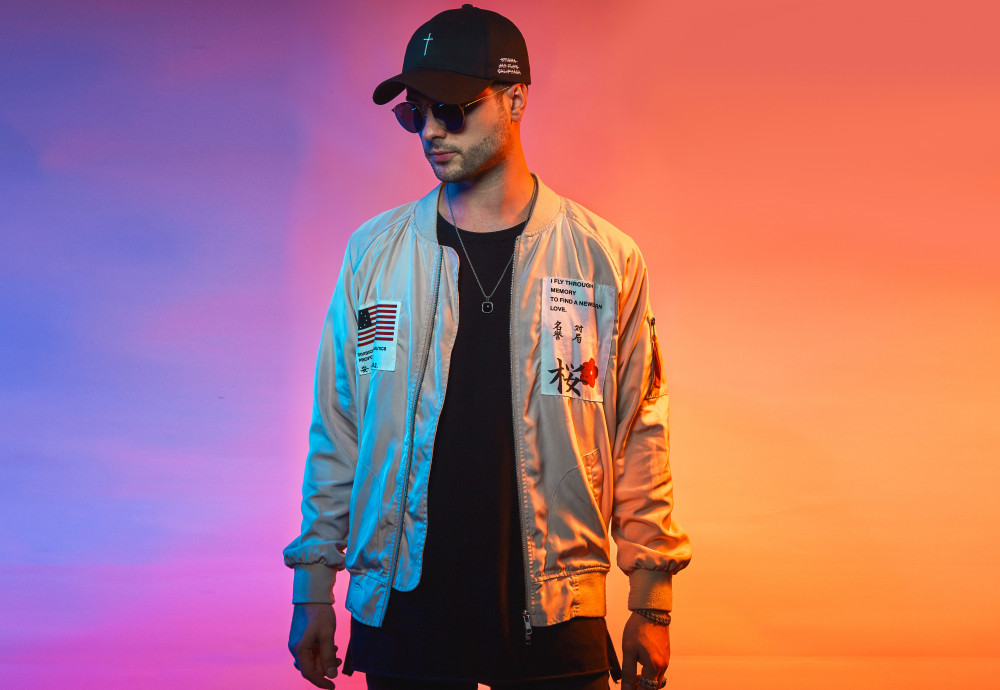
allkpop: Do you approach writing songs with specific artists or groups in mind or do you just approach with a general idea of how something will sound conceptually?
Andy: You’re told what you’re writing for at a particular camp, and that goes across the board. There’s usually a focus and it’s important for creatives to be able to latch onto that focus and then be able to interpret that how they want. When the label says these are the references, then it’s our job to interpret the references, but not give them exactly what they want. You've got to put your stamp on it and make it stand out and be a little bit different. Obviously, the A&R in charge have a very set thought on the route their artists should take, and I always respect that, but I try to put my stamp on it and take the artist where I think they should or could be going. I don’t always get it right, but I would rather give them something that’s different, then the same thing they’re regurgitating. I’d rather be fresh and wrong, then safe and the same.
Alawn: I think that it is very important to target an artist or group. If you don’t, it’s hard to shape the topline. You need to have a direction. If you’re going for a solo male artist like KAI or Baekhyun, there’s going to be a certain style and the vocal arrangement is going to be much more simple. If you’re going to write for NCT, there’s going to be a lot more rap and chants, than if you want to write for WayV or any other group. I love to target a group or solo act and keep that in mind. Production wise, I have complete freedom and do however I feel will suit the song and artist best, but on the topline, it’s key to shape it to fit an artist’s range and flow.
Benji: Some companies will send out, “This is the direction we’re looking for”. For example, you might receive an R&B meets Hard Rock brief, then as a creator, you have to figure out, how far can I take it? Could I mix a Linkin Park sound with a Rihanna melody for example? In your head, you have to be able to conceptualize. Would this kind of melody work over this kind of production and would this fit in the space of K-Pop? I like Drake’s music, but I do not think I would want to hear a Drake song in Korean for a K-Pop group specifically. Either you have those guidelines, or you say, “This is what I think really works”, add a little bit of the blueprint, and you get yourself a track.
Rokman: They give us good freedom, but they give us direction. When I'm working with new people and I feel like this collaboration is not pulling us all the way to where it needs to be. I’ll have to make the executive decision to make the song more general. If I don't think we’re hitting the mark they’re asking us to hit, I may slightly alter the direction of the session to make it a more general pitch if I don’t think it’s gonna work for what we’re doing so the song becomes of use still. Sometimes you’re with a group of people and you’re just not hitting the mark. When I see that happening, I’ll gear us towards a general direction, but at least we’re not wasting a song and we can still make something that’s useful.
allkpop: How does taking into account a group’s individual ranges and talents come into play?
Benji: You have to consider the members that are in a K-Pop group because it’s widely known you have rappers, and vocalists, and people who are more visual or dance oriented members. Putting the calculation of what each role can sing, more specifically, does have an effect. If we’re writing a track, we might say, “I think there’s too much rapping, the vocalists aren’t going to have anything to do” or “We shouldn’t do as much rap”. At times, a song won’t really come through as it’s initially designed to. You have to balance that commercial demand and at the end of the day, it’s not that when a song gets bought or cut, it’s taken as is. That’s rarely the case. There are edits.
Michael: At a writing camp, we know we’re writing for NCT 127, NCT Dream, or NCT U, for example. We would never say “This is an SM camp” because then it’s not clear. Are we going to be gearing more towards the female acts or the male acts? You want to get as much direction as possible because creating live in the room can happen and a lot of producers do it, but if they know, “Hey, I’m going for an NCT thing first”, they’ll prep certain loops or engineer certain sounds that just feel NCT to them so that in the room they can say, “Are you guys feeling a more urban one? Do you want to do a more ballad one?”. They’ve prepared some ingredients and have them chopped in jars and have them ready to pour.
allkpop: Are the briefs and guidelines static or can they change over time as the label reevaluates a comeback?
Michael: The NCT sound is so signature, and they’re always looking for a way to iterate that, because they don’t want every comeback to sound alike. For a while when SM was sending out briefs, they stopped actually (specifying details when) sending out briefs. Because when they would send out a brief that said “early 2000s”, they would get so many songs that sounded the same or sounded like things they had already done. Labels are looking for that next generation of sound.
Alawn: To add, I do all this to help be inspired and efficient, but 90% of the time, the track I prepare for a given artist will be cut by an artist that I would have never thought. That’s the irony of that.
Michael: We’ve had it happen where we’ve submitted a song, and a label has reworked a whole existing album project around our song. They cut songs from the album and rebuild new ones and can change the soundscape of a release if the right song comes through.
allkpop: With so many different ranges of talent and tenure in the industry, pulling from your personal experience, what makes a song successful in the K-Pop market?
Alawn: To me it’s super simple. It’s two things: the first few seconds of the song needs to be unique and memorable. Something that hasn’t been heard before that serves as the song’s identity. When you press play, it needs to right away, catch the ears of the listener. All the greatest hits and most successful K-Pop songs are songs you recognize the moment they start playing. That’s the most important. The second thing is a really catchy chorus. It’s easy to say, but it’s the hardest thing to come up with. A memorable and unique chorus that’s easy to sing along for fans to remember, but complex enough to be interesting melodically. Sometimes it can be super simple like “Mmmh Mmmh”, but as long as it’s memorable.
Benji: In a K-Pop market, there’s a lot behind the success of a song besides the song. In terms of music, does it hit like the title track or does it hit like a b-side? Obviously, there’s a lot of amazing b-sides that exist. If you’re going to write a title track or a lead single, then it might become a b-side on the album. Does it really hit? Does it have that structural variety where you can listen from front to back? When you finish the song, is your impression “Ok, wow, there was a lot in that but it still sounds like it was all designed together”? It’s not just random.
Michael: A lead single has a different vibe. There’s a visual element to it and it is more cinematic. That’s where you can get that louder, crazier soundscape for a little bit. It really sets the tone for the next few months of a group’s project. So whatever it is, it is a statement. Even if it’s a relaxed statement or a laid back statement, it has to have presence visually and sonically.
Rokman: If you’re looking for a big song, what makes it super successful is it being very memorable. The production, sounds, and choreography is a huge part of the success of a lot of these. When YouTube was introduced to K-Pop music that’s when choreography blew up even more. Nowadays, all the biggest songs have dance practices. Whenever we make songs, we think about these things, we make a song and think this is the direction we want it, but what would make it a successful song? We sometimes visualize choreo when we’re making it. Will it make sense for a group with multiple people? What will make a song really successful is just having a bright vibrance to it that makes you feel really good. If it makes you feel good, that’s half the battle.
Michael: The feeling is a big part of it because music is so subjective. You can listen to something say this is amazing, this is perfect for red velvet. This is perfect for IVE. This is perfect for NCT 127 and the A&R will be like, “Did a kindergartener write this?” So there is always an inherent subjectivity to everything we do which is why at Hello we’re very clear that A&R is not God. At the end of the day, what we push for is musicality. We ask for that to be on display, not only on the topline, but as a whole. We champion flat 7’s, flat 9’s, a jazz transition, we really think it’s important to lean into genre-bending and blending.
allkpop: What’s a good way to showcase your creation and lay down your track to really resonate on that first listen when sending it in for consideration?
Michael: Stray Kids does it so well. Their song “Venom”- you have a hard urban verse, and then you transition to this R&B jazz pre-chorus that drops back into this filthy, production-forward, very cool, minimalist, sound design that’s so in-your-face. A song needs to be great, that’s the bare minimum. Where you can separate yourself even further is by making sure the demo vocalist sounds incredible and not too stylized to be themselves. The vocal needs to sound agnostic. General male, general female. We also look for a great gimmick in the topline and track. I always like to challenge writers by saying “Imagine if the vocalist changed every four bars. What would you do production-wise to make sure that I, as a listener, am not getting bored?” It's about trying to find enough excitement to keep me listening to that next section. In a world where everyone just swipes, and if you’re trying to introduce more of a Western market to a song, why would I listen to this group over my established Western acts that I as a general consumer may like? Here’s why- because the song is undeniably amazing and does what Western music isn't doing yet, but will soon start to copy.
Andy: Back to my other point. I think identity. If the song has that something special without that topline, then it’s already a winner. Once you get that and you put a topline on the backtrack and complement the production, that’s where you get the hit songs. For me it’s all about the magic 5 seconds. Sometimes there’s 10, sometimes there’s 2, but it’s that well-timed chord progression or change in the melody that makes everyone go, “What is that?” and starts the conversation between fans and writers alike. I’ll say to my producers, “Have you heard this song that’s just come out?” I did this the other day. I called David Amber asking him if he had heard “Hold On Tight” by aespa. It’s a full-on nursery rhyme sound they used that’s the magic 5 seconds on that song. That’s how it gets shared.
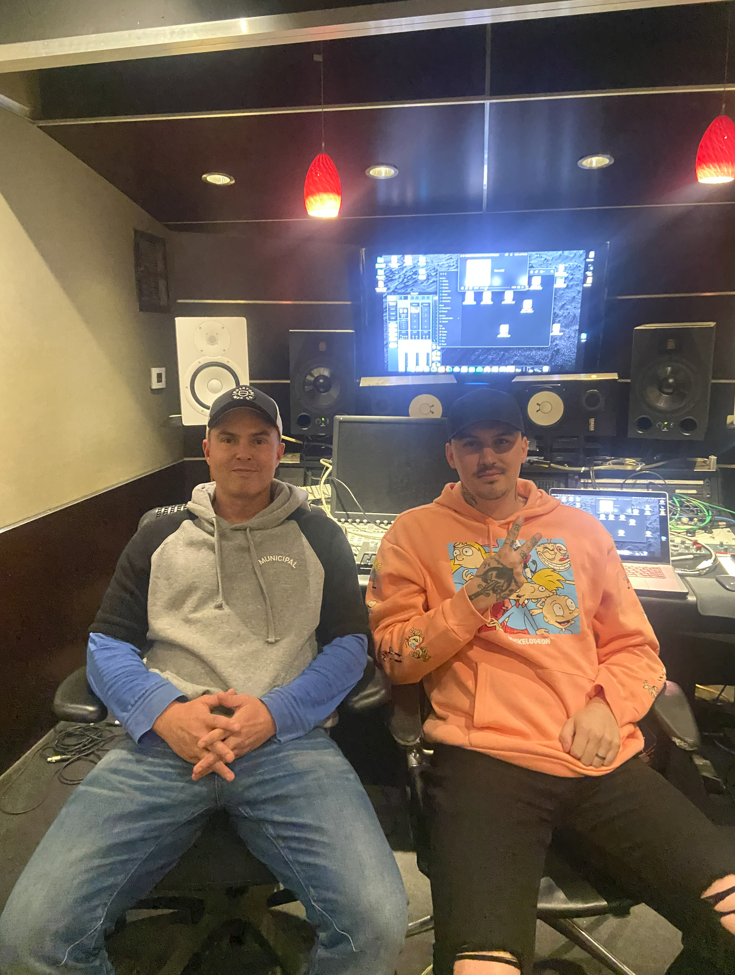
allkpop: As K-Pop globalizes into Western markets, how do you think songwriting will evolve as the genre progresses?
Michael: I think there’s more than enough room in the sandbox for tremendous amounts of writers to come in. I think we’re going to start hearing more of a global appeal and you’ll see a segment of K-Pop that is going to get more global in the sense of external influences. You hear reggaeton beats all the time already, so why not slip in a little Spanish? I wouldn't be surprised if we get a little more creative there in the languages that were spoken in K-Pop songs too.
Alawn: I think it’s forever growing and evolving. Since so many new writers are coming into the world of K-Pop with brand new ideas and perspectives, it makes the sound evolve organically. The labels are definitely going more and more Western. The next step for K-Pop, which BTS has already done by working with artists like Halsey and Coldplay, is that Korean labels are going to keep pushing the export of K-Pop globally. Collaborating with international artists is really important, so finding the right balance in the sound will be a challenge. It’s hard to predict what it’s going to sound like.
Rokman: Overall, Korean music has been influenced by Western music for a long time. K-Pop was never something that was secretly for only Korean people. The message with K-Pop music is that it’s for everyone, so we’re going to be seeing a lot more influences from the rest of the world, especially from Western music because Western music is incredibly influential. Many Korean artists love American artists, so I definitely can see a lot more Western change being added to what already is K-Pop music.
Andy: Scooter Braun being the right arm of HYBE in the US is a huge move, and I think there's going to be a lot more collaboration between Western artists and K-Pop artists as well. I think it may scale to the point where it’s not going to be K-Pop anymore, it’s just going to be music. When NSYNC and Backstreet Boys were dancing and singing, that got lost in the Western market for a long period of time. That’s why I think K-Pop resonates with a Western audience, because there hasn’t been any of that entertainment factor. I think it’s a necessary and welcome thing for the Western industry to have K-Pop, because it balances out the 8 bar loops, raps, boringness and lack of chord changes.
Michael: In the near term, I feel that NewJeans did for K-Pop what Billie Eilish did for Western Pop. Billie Eilish came in and created her own sound and it was this whisper, underwater pop kind of thing. It used a dark, open soundscape and it was a signature to Billie Eilish for a long time. Anyone else that tried to do it sounded like they were copying Billie Eilish. I think that NewJeans has set off a race in the industry to find the next NewJeans-adjacent sound that is not going to make the group sound like a NewJeans rip off. So many labels aren't necessarily asking for another NewJeans song, but when they type the brief and use words, they’re describing NewJeans sound on paper. That early 2000s throwback K-Pop soundscape with a jazz-heavy, very music-forward concept, simplified toplines, and vibe-heavy is easy listening. Everyone is asking how to do that with their groups and artists. I’m really interested to see what the NewJeans soundscape could look like in a guy group. Because when someone cracks that code, and we have a male group that hits like NewJeans, it’s going to set off another race.
allkpop: What about as the tech progresses? You’re already starting to see AI and the like, how do you feel that might play a part in how music is created going forward?
Benji: I think that with all the AI Kanye and Drake and all these weird technologies that exist, it’s up in the air right now. Having a formulaic aspect to the music is not necessarily the best thing in terms of finding a unique sound, but it does, in its own way, create its own kind of ecosystem, musically speaking. You have to understand a lot of different genres and melodies in order to write a song for K-Pop. The standard formula, let’s say if you’re doing Hip Hop, is a vocal breakdown, so you have to know how to write a rap with flow. It’s not the typical, “Hey I’m at the store, I’m feel a little more.” It's key that the artist or the A&R team that’s listening can understand the vision. It doesn’t matter how great an idea could be, if someone doesn’t see it.
Andy: History has shown that the people who fight innovation are the ones who lose. The artists have to latch onto this new wave because they’ll eventually be able to monetize it. Right now, it’s the wild, wild, west and I think no one has a clue what’s going on and the labels are all scrambling and thinking “what the hell do we do now?” But, there is always a period of disruption, before people learn how to monopolize and monetize a situation.
allkpop: It’s been amazing to learn about the more hidden processes of songwriting that I’m sure many fans are hearing about for the first time from you folks. Since you started the interview with a song you’re most proud of, let’s end on a fun one. What’s one K-Pop song you wish you wrote or produced and why?
Benji: I’m into the 2010s to 2020 era of K-Pop. I guess I am technically a part of the 2020 era, since I'm writing music for it, but for me, I really liked the song “Love Scenario” by IKON. It was a great track. Or even to be part of “Bang Bang Bang” by Big Bang. I’m a YG fanboy. If we need one from more recent times, we’ll say “OMG” by NewJeans.
Rokman: I’m a hard person to ask that because I listen to every genre you could think of. I don’t have a favorite song. I just go for what my vibe is that day, but going back to my early days of listening to K-Pop, those songs are the ones that stuck with me the most that got me here. “In My Space” by Kim Woojin is a song I love and I really wish I wrote that. “Hello Future” by NCT DREAM was an early song for me that really inspired me. “Atlantis” by Shinee is another one. “Gottasadae” by BewhY, too. I really like all of those and they’re all really different styles.
Andy: If I had heard the beat of Stray Kids “Venom”, I would have freaked out in the studio. Whether or not I would have been able to do as good of a job on the topline, I don’t know. The way that they left the space for that signature sound to breathe and be menacing is a masterful topline that I love. Chord-wise and as a singer, and as a singer’s song- I would say “Favorite” by NCT 127 because it just keeps going up in chords and weirding me out, and weirding me out again. It's really a climactic song. I love everything about it.
Michael: I love NCT DREAM “Glitch Mode”, and we helped with IVE “Eleven”, my number 1 song on Spotify for 2022. “Superhuman” by NCT 127 is probably my favorite K-Pop song of all time. It has everything - it’s K-Pop’s “Firework". It’s just hook after hook!
Alawn: “Superhuman” by NCT 127. It’s one of my favorite K-Pop songs ever. Production-wise and as a whole with the topline, it’s so complex. It was years ago (that it was released), but it was so ahead of its time. I love the chords and the rhythms. I want to say it’s my favorite K-Pop song of all time. I really wish I did that one! It’s super memorable.
 SHARE
SHARE
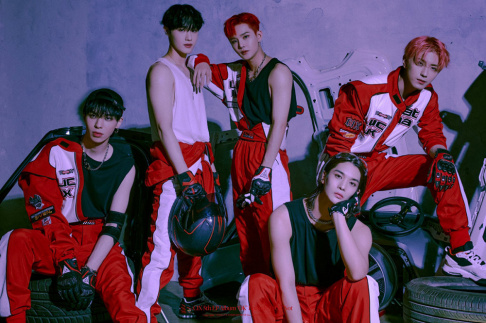
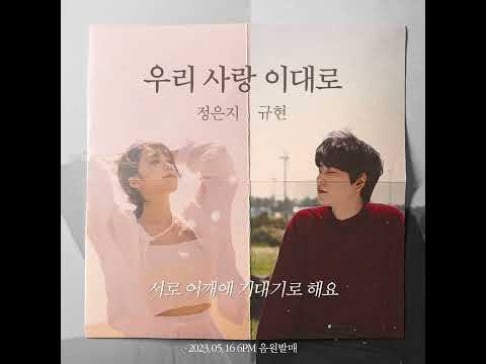


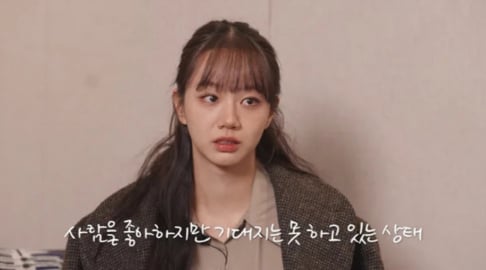
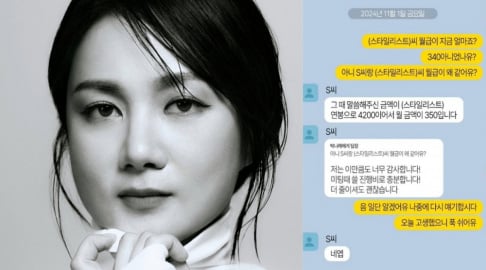
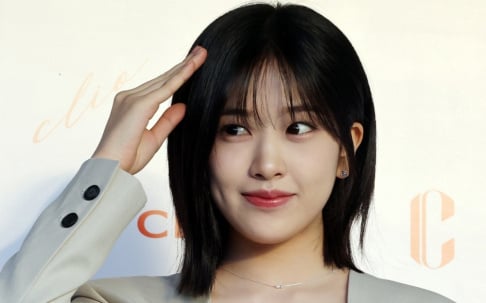
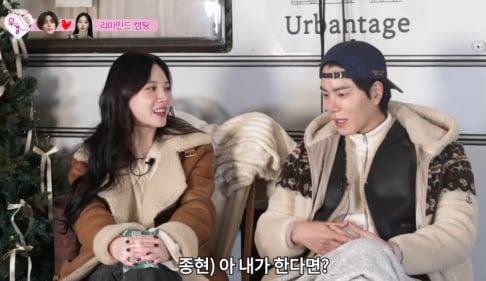
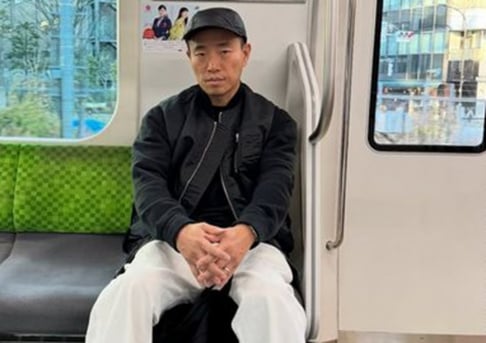
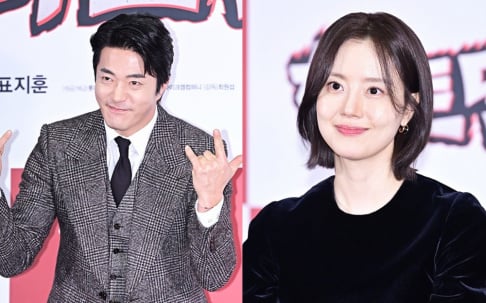
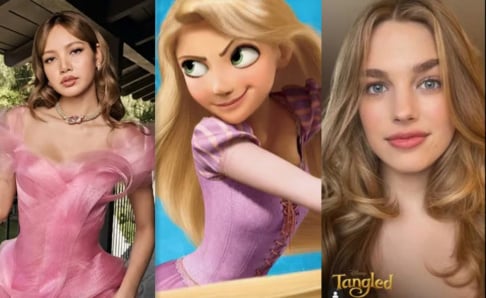

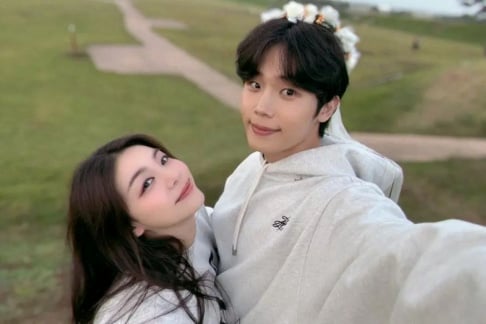
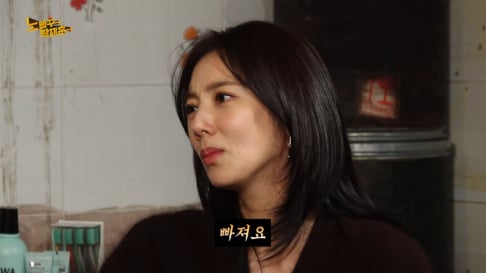
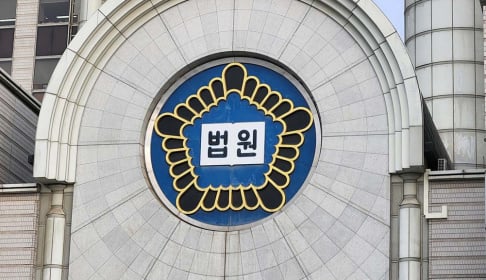

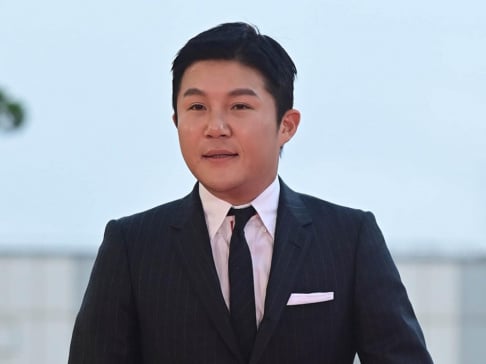
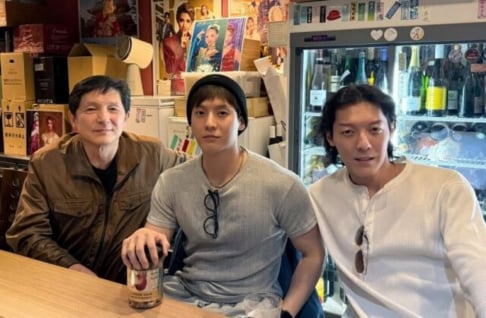

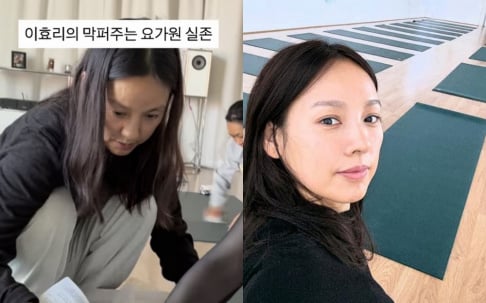
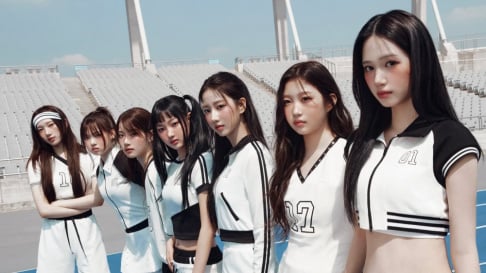
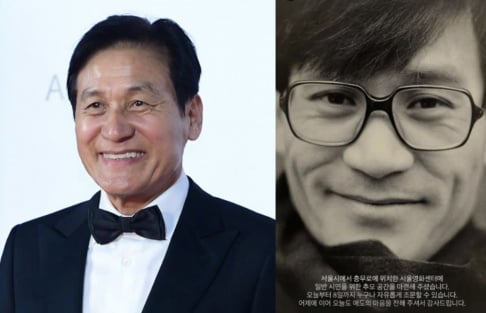
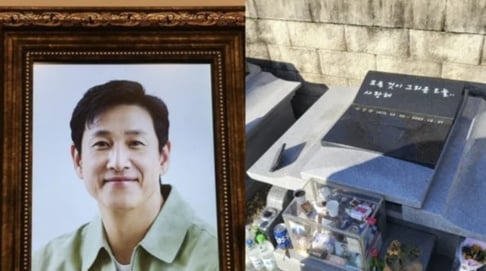
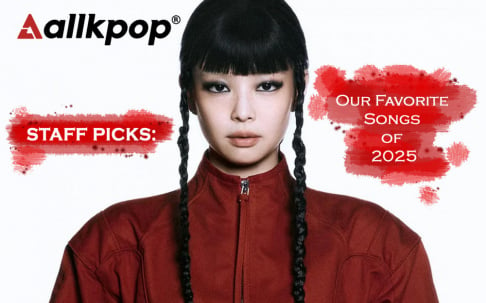
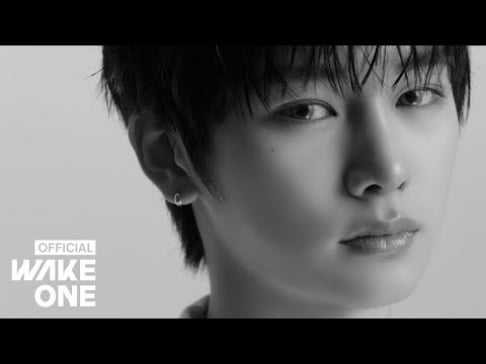
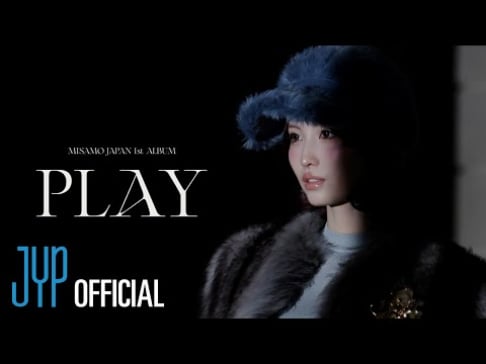
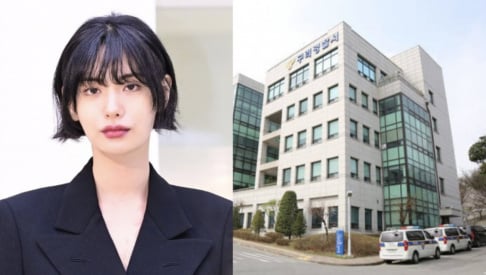
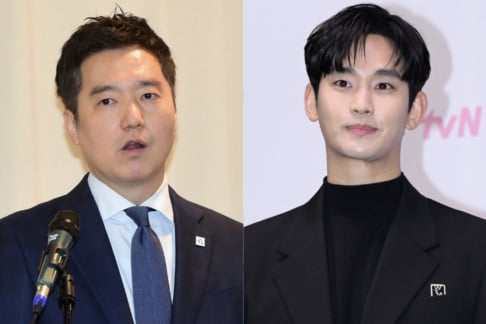
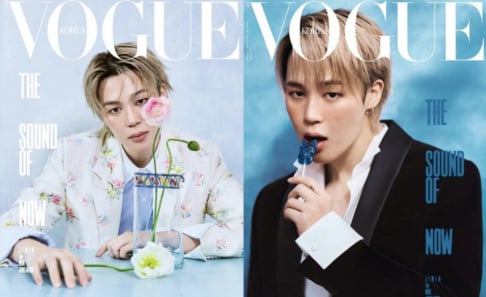

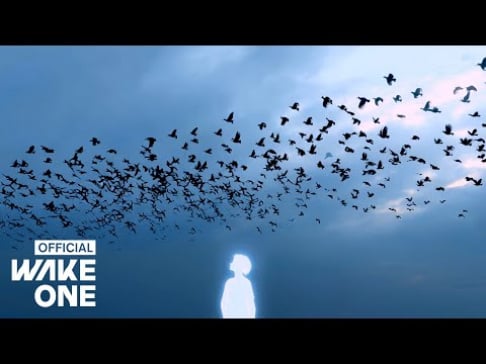
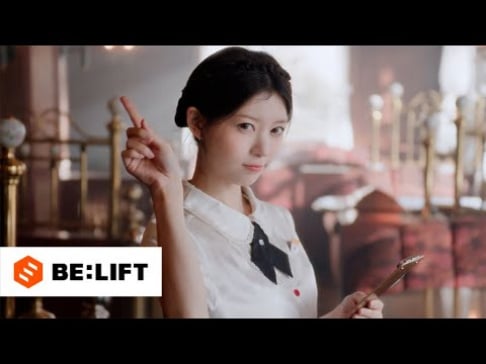
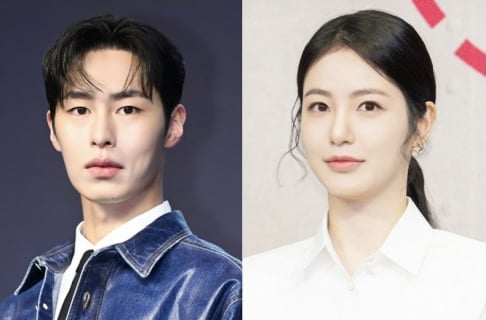


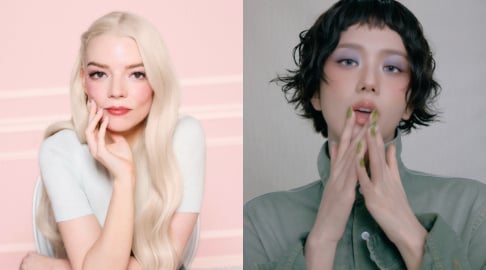
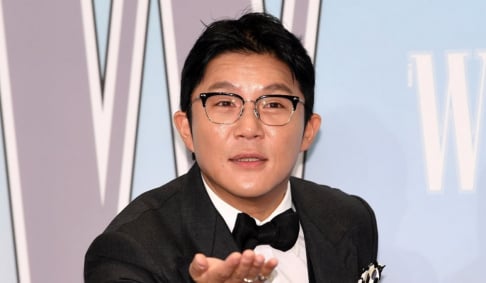
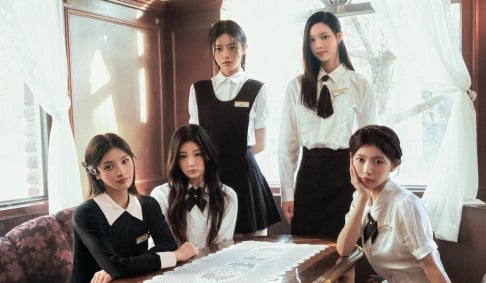
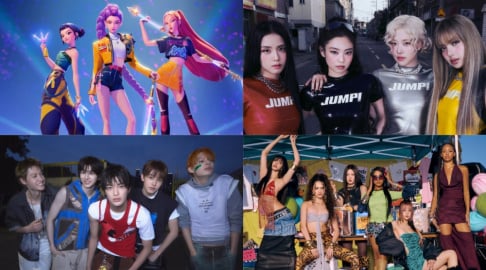








I honestly miss sole k producers sound. The sound of fresh innocence, or organic hype choruses.